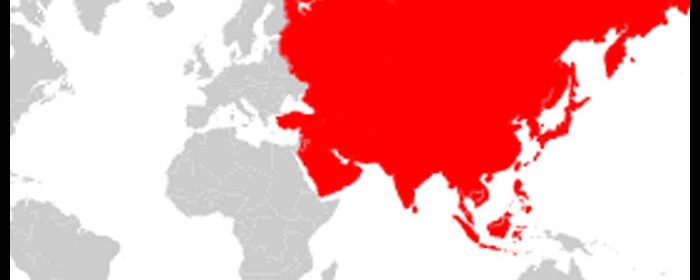Asian Markets A Sea Of Red On Global Cues

Asian stock markets are a sea of red on Friday, following the broadly negative cues from global markets overnight, amid continuing concerns about the impending recession and the global economic outlook following the recent aggressive interest rate hikes by the US Fed and other major central banks. Asian markets ended mostly lower on Thursday.
The Fed’s economic projections suggest further aggressive interest rates in the final two meetings of the year, as the central bank continues its aggressive efforts to combat elevated inflation.
“Global equities are struggling as the world anticipates surging rates will trigger a much sooner and possibly severe global recession,” said Edward Moya, senior market analyst at OANDA.
Reports on inflation and the labor market in the US are also likely to be in focus in the coming weeks, as traders look for signs the Fed could alter the aggressive plan that has been laid out.
Fears over China’s slowdown and Russia’s warning to escalate the war in Ukraine also spooked markets.
The Australian stock market is tumbling in post-holiday trading on Friday, extending the losses in the previous session, with the benchmark S&P/ASX 200 falling below the 6,600 level, following the broadly negative cues from global markets overnight, as traders digested the US Fed’s interest rate hike, with weakness across most sectors, led by technology stocks. Resource stocks are the only bright spots.
The benchmark S&P/ASX 200 Index is losing 119.40 points or 1.78 percent to 6,580.80, after hitting a low of 6,568.50 earlier. The broader All Ordinaries Index is down 128.30 points or 1.85 percent to 6,793.10. Australian markets ended sharply lower on Wednesday ahead of the holiday on Thursday.
Among major miners, OZ Minerals is gaining more than 1 percent, Rio Tinto is advancing almost 3 percent, while Fortescue Metals and BHP Group are adding almost 2 percent each. Mineral Resources is flat.
Oil stocks are weak. Origin Energy and Woodside Energy are losing more than 1 percent each, while Beach energy is slipping almost 1 percent and Santos is declining more than 2 percent.
Among tech stocks, Afterpay owner Block is plunging almost 9 percent, Xero is sliding almost 6 percent, WiseTech Global is declining more than 4 percent, Appen is slipping almost 4 percent and Zip are losing more than 6 percent.
Among the big four banks, National Australia Bank and Commonwealth Bank are losing almost 2 percent each, while Westpac and ANZ Banking are down more than 1 percent each.
Gold miners are mostly higher. Newcrest Mining is losing almost 1 percent, while Resolute Mining is gaining more than 2 percent. Gold Road Resources and Northern Star Resources are edging up 0.3 to 0.5 percent each. Evolution Mining is flat.
In economic news, the manufacturing sector in Australia continued to expand in September, and at a fractionally higher pace, the latest survey from S&P Global revealed on Friday with a Manufacturing PMI score of 53.9. That’s up slightly from 53.8 in August, and it moves further above the boom-or-bust line of 50 that separates expansion from contraction. The survey also showed that the services PMI improved from 50.2 in August to 50.4 in September, while the composite PMI rose from 50.2 to 50.8.
In the currency market, the Aussie dollar is trading at $0.663 on Friday.
The Japanese stock market is closed for Autumnal Equinox holiday on Friday. Japanese stocks closed significantly lower on Thursday.
In the currency market, the U.S. dollar is trading in the 142 yen-range on Friday.
Elsewhere in Asia, South Korea is losing 1.5 percent, while New Zealand, China, Hong Kong, Singapore, Malaysia, Taiwan and Indonesia are lower by between 0.3 and 0.9 percent each.
On Wall Street, stocks once again saw late-day fluctuations but ended Thursday’s trading mostly lower, adding to the steep losses posted in the previous session. The Dow and the S&P 500 fell to three-month closing lows, while the Nasdaq slid to its lowest closing level in well over two months.
The major averages all closed in negative territory, although the Dow posted a relatively modest loss. While the Dow dipped 107.10 points or 0.4 percent to 30,076.68, the S&P 500 shed 31.94 points or 0.8 percent to 3,757.99 and the Nasdaq tumbled 153.39 points or 1.4 percent to 11,066.81.
The major European markets also moved to the downside on the day. While the U.K.’s FTSE 100 Index slumped 1.1 percent, the German DAX Index and the French CAC 40 Index tumbled by 1.8 percent and 1.9 percent, respectively.
Crude oil prices settled higher on Thursday on concerns about tight supplies amid geopolitical tensions in Russia. West Texas Intermediate Crude oil futures for November ended higher by $0.55 or 0.7 percent at $83.49 a barrel.
Source: Read Full Article
